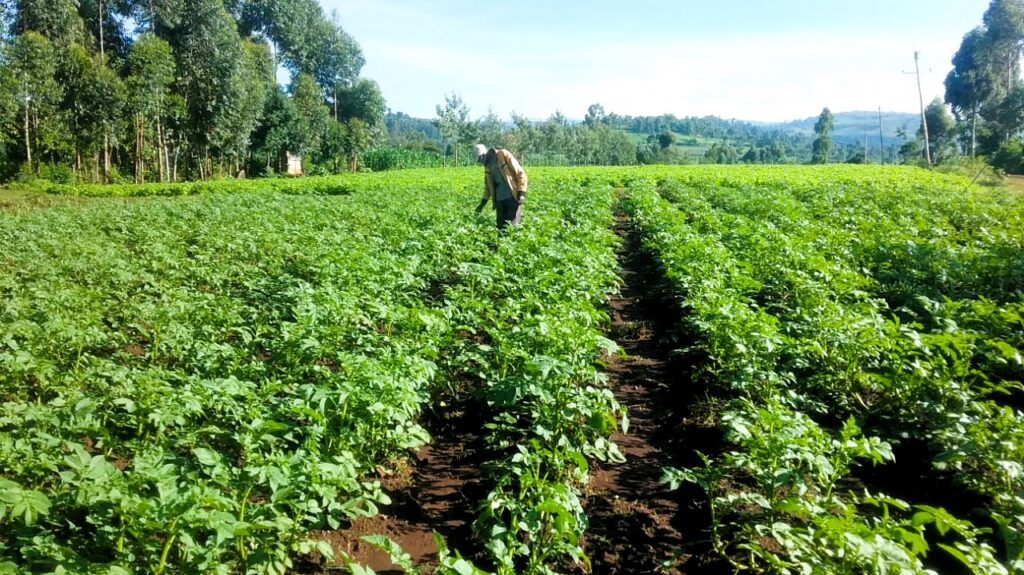Potato Cyst Nematodes (PCN), microscopic worms that attack potato roots, are threatening potato production across Eastern and Southern Africa. These pests can reduce yields by up to 100%, crippling farmer livelihoods and jeopardizing regional trade. Once PCN infests a field, it feeds on potato roots, stunting plant growth, causing yellowing, and producing small, poor-quality tubers. Because the symptoms are often mistaken for poor soil fertility, infestations can spread silently and remain undetected for years.
PCN is classified as a quarantine pest, meaning its presence can trigger strict border controls that disrupt potato trade. Early detection and effective management are therefore crucial to safeguarding this vital crop. Potatoes are a major staple in the region, supporting an estimated 800,000 smallholder farmers across over 800,000 hectares, with nearly 9 million tons produced annually. The pest’s spread threatens food security, farm incomes, and cross-border market access.
To address this challenge, a regional initiative is strengthening the capacity of National Plant Protection Organizations in 12 African countries to detect, monitor, and manage PCN outbreaks. The program delivers technical training, diagnostic tools, and management strategies to plant health professionals, border inspectors, and laboratory technicians.
Training covers accurate sampling, extraction, and identification of PCN, using specialized equipment such as Fenwick cans and sieves. By improving diagnostic skills, agencies can quickly confirm PCN presence and initiate timely control measures. The initiative also supports national detection surveys in major potato-growing regions to map PCN distribution and prevent further spread.
Workshops have brought together representatives from Kenya, Uganda, Burundi, South Sudan, Rwanda, Ethiopia, Zimbabwe, Zambia, Malawi, Mozambique, Tanzania, and Lesotho. Following these sessions, several countries have already begun field surveys and laboratory analysis. Zimbabwe has completed both extraction and identification, Zambia and Malawi are in progress, while Ethiopia has finished sample collection. Lesotho, Mozambique, and Uganda are preparing for upcoming surveys.
Beyond diagnostics, the project promotes awareness among farmers, traders, and policymakers about PCN symptoms and the importance of coordinated action. Regional cooperation is a key element, enabling countries to share information, harmonize phytosanitary measures, and collectively protect potato production.
By building local expertise, improving early detection, and fostering collaboration, African nations are taking significant steps to combat PCN. These efforts aim to secure potato yields, protect livelihoods, and ensure sustainable trade in one of the region’s most important staple crops.

